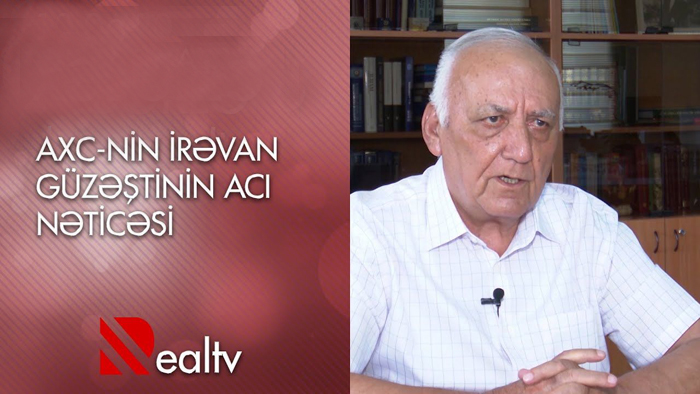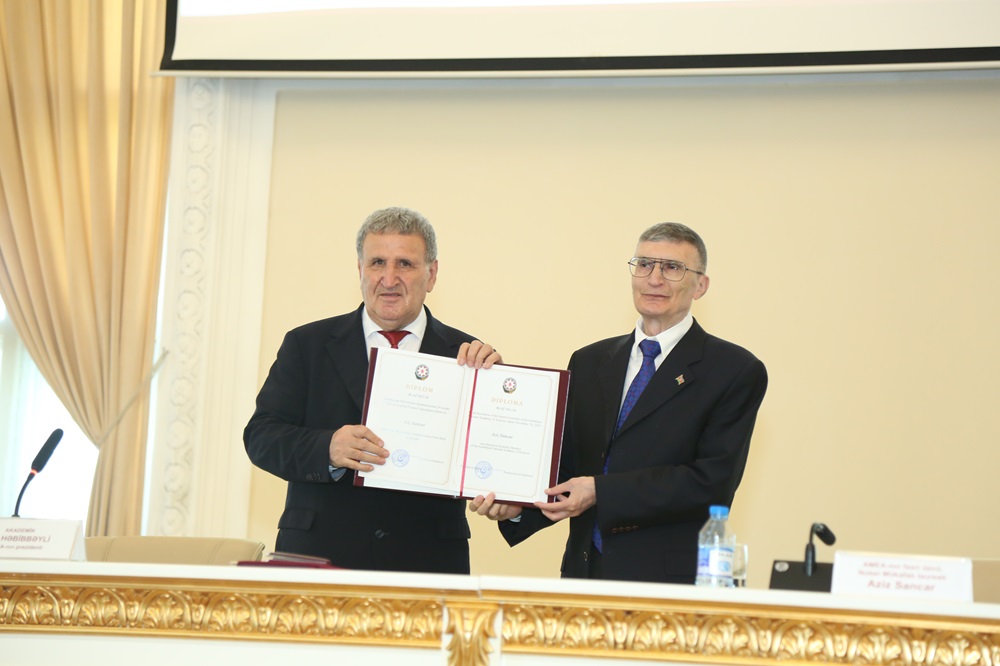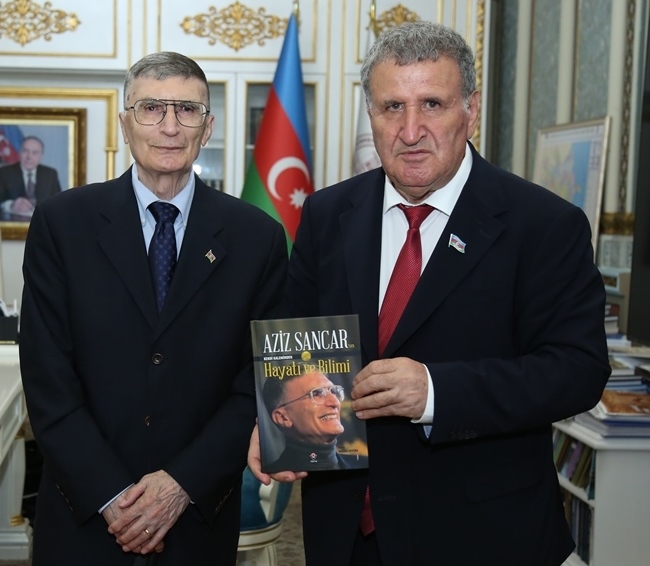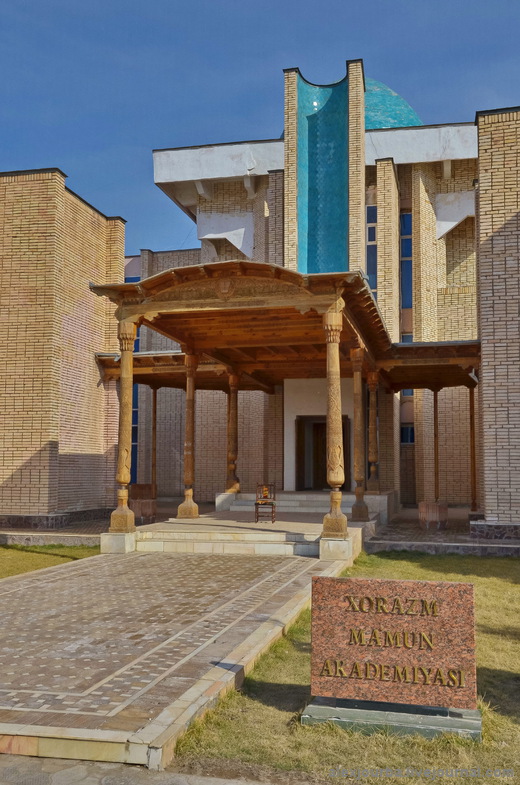
- A-
- A
- A+
Academician Yagub Mahmudov revealed real facts about transfer of Irevan to Armenians
Director of the Institute of History of ANAS, academician Yagub Mahmudov, in an interview with "REAL" TV channel, revealed the real facts about the transfer of Iravan to Armenians. The scientist said that presenting facts reflecting the truth about the conditions in which Irevan was given to the Armenians is of great importance.
President Ilham Aliyev, relying on real historical facts and primary sources, repeatedly, unequivocally and decisively declared to the whole world that the Armenians had once created a state for themselves on the Azerbaijani lands of Irevan and the adjacent territories transferred to them by the Azerbaijan People Republic (APR). Azerbaijan will not allow aggressive Armenia to create a second Armenian state in its territories.
Based on the recommendations and instructions of the head of state, the Institute of History has further expanded its research in this direction, revealing a number of new documents and interesting facts about the transfer of Irevan and the adjacent Azerbaijani lands to Armenians.
As a result of research conducted in a scientific institution, it was proved that until 1918 the Armenian state never existed in the South Caucasus. By the decision of the Academic Council of the institute, the book “The historical succession of the Azerbaijani people to Irevan and the surrounding territories should be restored” was published in Azerbaijani, Russian and English languages, devoted to the issue of transferring Iravan to Armenians.
After the February revolution in Russia, in 1918 in the South Caucasus, only two indigenous (aboriginal) peoples - Azerbaijanis and Georgians, could create a state. Since only these two peoples had an ethno-territorial base for the creation of the state. The Armenians who were resettled in the South Caucasus and settled mainly on Azerbaijani lands did not have a territorial base here to create their own state.
Among the member states of both military blocs that participated in the First World War, both the Entente (tsarist Russia, England, France, the USA) and the German-Ottoman bloc, a common opinion was formed on the creation of a state for Armenians. Russia, England, France and the USA supported the creation of the future Armenian state on the territory of the Ottoman state - in Eastern Anatolia. However, in order to alienate the "Armenian threat" from its territory, that is, from Eastern Anatolia, some circles of the Ottoman state tried to create an Armenian state outside the borders of their country - on Azerbaijani lands. The Azerbaijani side did not have real forces: both to resist the pressure of the great powers, and for armed resistance to committing acts of genocide throughout the territory of Azerbaijan to the Dashnak-Armenian military units and the states behind them.
Therefore, the leaders of the Azerbaijani national movement in the matter of creating a state for the Armenians acted under the dictation of some political circles of the Ottoman state, or rather they were forced to do so. In the created historical conditions, the Azerbaijani side, that is, the members of the Azerbaijani faction of the Transcaucasian Sejm, through the mediation of the Ottoman state, entered into negotiations with the Armenian side to determine the lands that were to be transferred to the Armenians to create their own state. It was hoped that in this way the Armenians would be ousted from Anatolia, the Ottoman-Armenian relations would finally be settled, and the international condemnation of the Ottoman state for the "Armenian issue" would cease.
The Azerbaijani side hoped that in return for these concessions, that is, the creation of a “small Armenian canton” at the expense of the Azerbaijani lands, the flow of Armenians from Ottoman territories to Azerbaijani lands, including in Baku, would be prevented, the Armenians would cease the genocide of the Azerbaijani population and would no longer make our country territorial claims. According to the Azerbaijani side, in addition, this step will cause complacency among the great powers.
The Azerbaijani side opposed the policy of Talat Pasha and Enver Pasha to "cleanse the abscess with the root" and proposed the creation of a "small Armenian canton." The corresponding special appeal to Enver Pasha was sent on May 23, 1918 by Azerbaijani representatives M.G. Hajinski and M.E.Rasulzadeh, negotiating in Batumi. This appeal, in addition to them, was also signed by Ahmad bey (Jan Baba), Aslan bey Safikurdski, A.J. Pepinov, M.Yu. Jafarov, F.Kh. Khoyski, N. B. Usubbeyov and Kh. B. Khasmammadov. A.B.Huseynzadeh and A.B.Agayev also addressed Enver Pasha with similar proposals the day before - May 22, 1918.
During the negotiations, the Armenian side, in case of transfer of Azerbaijani territories to it to create a state, assumed a number of obligations to Azerbaijan and the Ottoman state. On May 29, 1918, by a resolution of the National Council of Azerbaijan, a number of other Azerbaijani lands were transferred to Armenians along with Irevan to create a state.
The Armenians, having achieved their goals, immediately after the Batumi negotiations refused to fulfill all obligations undertaken by them in return for transferring to them, according to the Batumi agreements, the Azerbaijani lands - Irevan and the adjacent territories. The newly created Armenian government, contrary to its obligations, did not establish a connection with Shaumyan who carried out the genocide of the Azerbaijani people to prevent this massacre.
According to the terms of the Batumi agreement and the decision of the National Council of Azerbaijan, Irevan and the adjacent 9,000 km2 of Azerbaijani lands were transferred to the Armenians to create a state. That is, the Armenian state was supposed to exist within the specified boundaries. However, later the Armenians violated the terms of the Batumi treaty and continued to expand their territories at the expense of Azerbaijani lands. Thus, the Armenian state created on May 29, 1918 on 9 thousand km2 of Azerbaijani lands, having seized another 20.8 thousand km2 of Azerbaijani land at different periods with the direct assistance of Moscow, brought its territory to 29.743 thousand km2.
Unsatisfied with all this, aggressive Armenia in 1988-1994 seized 17,000 km2 of Azerbaijani territory in Nagorno-Karabakh and surrounding areas, committed an unprecedented crime against humanity - an act of genocide in Khojaly.
When I was a member of parliament, Milli Majlis repeatedly raised the issue of the historical succession of the Azerbaijani people to Irevan and the surrounding territories. In our opinion, since the Armenian side unilaterally violated all the conditions of the Batumi negotiations and the Batumi Treaty of 1918, therefore, this agreement has lost its legal force. The Republic of Azerbaijan, as the legal successor of the APR, should take an adequate step: in the Milli Majlis to revise the decision of the National Council of Azerbaijan dated May 29, 1918 on transferring, without taking into account the will of the people, Irevan and the adjacent Azerbaijani lands to the Armenians. This decision must be declared null and void. Thus, the historical right of the Azerbaijani people to their lands should be restored, ”said academician Yagub Mahmudov.
©All rights are reserved. Citing to www.science.gov.az is necessary upon using news.

 Elm TV
Elm TV
 Photo
Photo
 Video
Video



